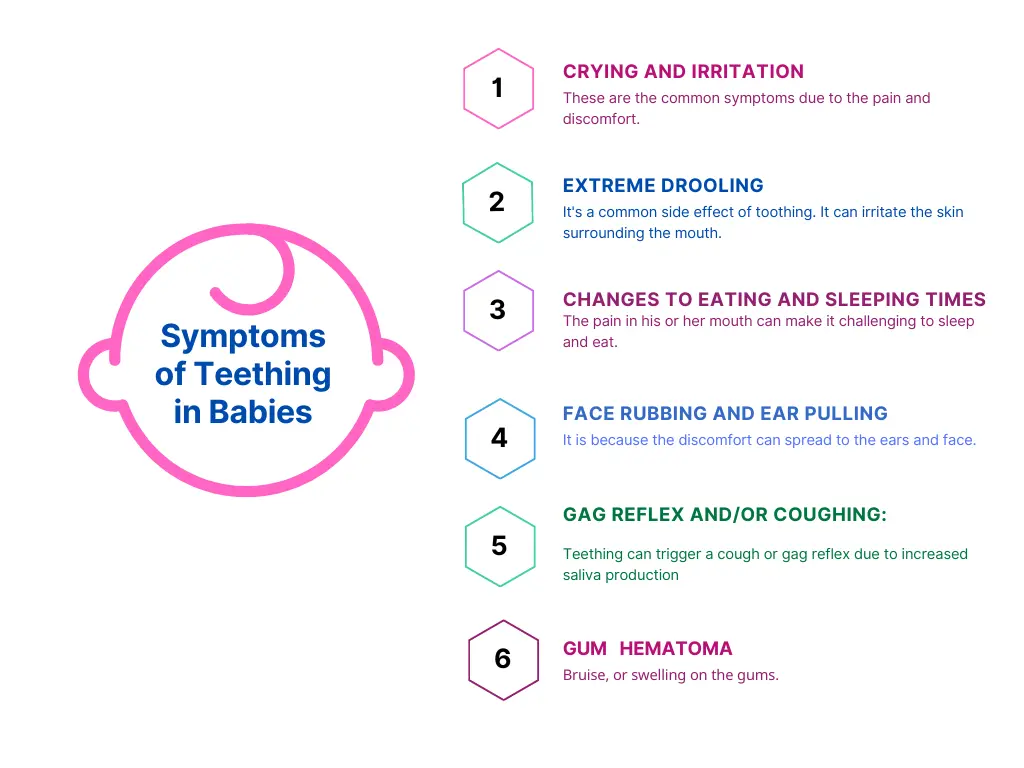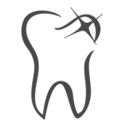
VISITING HOURS:
Week Days - 9 am to 8 pmSundays - Only Emergency Cases
Baby Teething Symptoms and Remedies
Children’s teething pains rank high on the list of developmental challenges. It’s unpleasant, often hurts, and might prevent you from getting any rest. When a baby is in pain, it can be difficult for parents to know how to help. If you have concerns about teething or want more information, this page is for you. We’ll talk about the discomforts your baby may experience from teething and how to alleviate those pains, so you know you’re doing everything possible to ease your baby’s suffering.
What are the Symptoms of Teething?

Crying and Irritation
Crying and irritability are common among teething symptoms in babies because of the pain and discomfort it might bring. Infants may exhibit increased crying, sleep disturbances, and increased parental clinginess. Applying a cool compress to the gums, massaging the gums, and providing teething toys or medication can help ease the pain. Baby can be distracted by play or calming music.
Extreme Drooling
Extreme drooling is also one of the teething symptoms in babies, and it can irritate the skin surrounding the mouth. Using a bib or a cloth to wipe up the drool and keep the area clean and dry is essential. Babies can be helped with their drooling using teething toys or cold compresses.
Biting
To ease the discomfort of teething, infants may chew on items. Babies need something clean and safe to chew on, such as a teething toy or a clean washcloth. A newborn can choke on something too little, so keeping an eye on them is essential.
Changes to Eating and Sleeping Times
When a baby is teething, the pain in his or her mouth can make it challenging to take in any liquids. Avoiding dehydration requires that fluids be provided regularly. A baby’s sleep schedule, including increased waking and difficulty settling asleep, may shift as they adjust to their new environment. The baby can be soot back to sleep with a light massage or soft music.
Face Rubbing and Ear Pulling
While teething, babies may rub their cheeks or tug at their ears. It is because the discomfort can spread to the ears and face. A cold compress or gum massage can help alleviate the discomfort. Playing a game or listening to some relaxing music can also assist.
Gag Reflex and/Or Coughing
Sometimes, teething can trigger a cough or gag reflex due to increased saliva production. For safety reasons, the baby should be held upright while feeding to avoid any potential for choking or aspiration. Frequent, modest feedings should be provided to avoid overwhelming the infant’s digestive system.
Gum Hematoma
There is a small chance that teething will result in a gum hematoma, a bruise, or swelling on the gums. The force of the tooth breaking through the gums can lead to this. See a doctor if your gums swell or develop bruises. They may suggest pain medication or a minor incision if the pressure is particularly severe.
Your baby may be teething if it shows any of these signs. Remember that not every baby may exhibit these symptoms; some may only have one or two, while others may seem to breeze through teething with little to no pain.
Remedies for Teething Discomfort
Teething Toys
To soothe the pain of teething, many parents turn to teething toys. Chewable objects can be found in a wide variety of forms and textures. Some are water-filled, so they can be frozen to soothe tender gums.
Cold Or Frozen Foods
Because of their anti-inflammatory and pain-relieving properties, cold temperatures are often recommended for children experiencing discomfort from teething. Frozen bananas, yogurt, and pureed fruits and vegetables are just some options for feeding your infant a cold or frozen meal. So watch your infant carefully, and don’t give them anything that could cause choking.
Massage Gums
To ease your baby’s pain from teething, try massaging his or her gums. Rubbing your baby’s gums with a clean finger or a moist washcloth can help prevent gum disease. A gum massager, made of soft silicone and designed to be frozen before use, is another option for massaging your baby’s gums.
Medications
There are many pain-relieving medicines that we commonly use for certain conditions, find online, or get from other sources. Before giving your baby any medication, you should talk to your pediatrician.
Conclusion
Teething is a normal part of a baby’s development but can be uncomfortable. As a parent, you should be aware of the signs and possible treatments for teething pain. If your child is experiencing pain from teething, try giving them a cold compress, teething toys, or medication. It’s also helpful to provide distractions like play or calm music and offer water regularly to avoid dehydration. Very high temperature, diarrhea, or excessive sobbing are all signs that a doctor’s visit is needed. When given the right amount of love and attention, teething can be relatively easy for both infant and parent.
To learn more about teething symptoms in babies and discomfort remedies get in touch with us.
Read to know:
OUR
TREATMENTS
TREATMENTS








